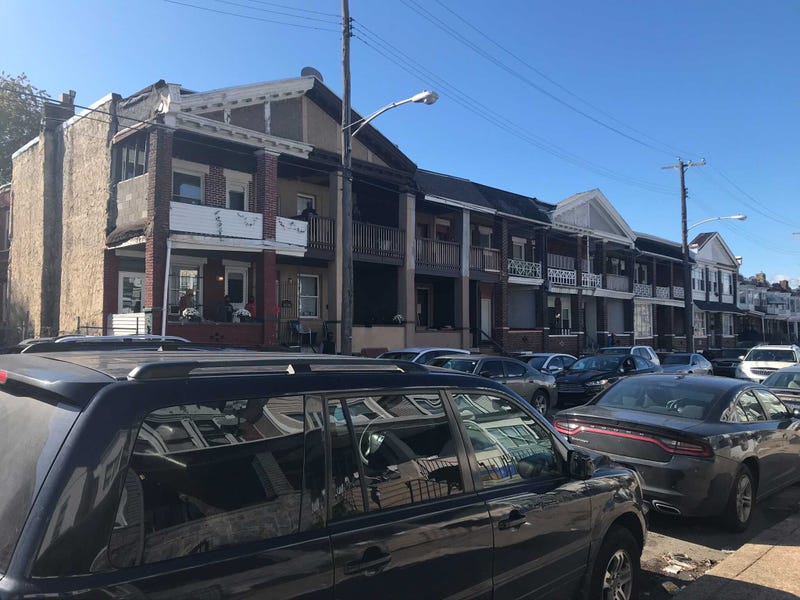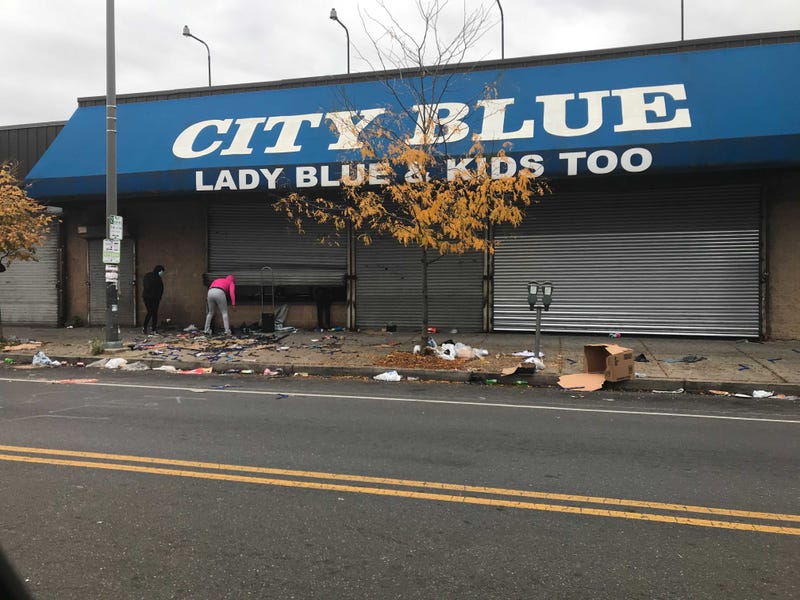PHILADELPHIA (KYW Newsradio) -- The release of the police body cam footage showing the shooting of Walter Wallace Jr. in Cobbs Creek has sparked debate about the trauma caused by repeatedly seeing videos of Black men being shot by police.
“Once you see it, you never forget it,” says Ronald Crawford, a licensed therapist who runs Honest Hurts, a counseling organization that holds group sessions focused on people of color dealing with trauma.
He says seeing over and over again videos of Black people getting killed by police "de-sensitizes you to the act of murder."
"It does do psychological damage, and it can make you numb," he said.

Crawford says he watched videos from cell phones and police body camera showing the shooting of Walter Wallace Jr. He says images and sounds of chaos and pain are unforgettable, and that’s just on the video. He believes trauma for people in the community who witness it could be more severe.
“Witnessing violence, witnessing murder, witnessing people get beat,” he said, ”causes people to have post-traumatic stress disorder.”
Crawford says the experience can also alter one’s response to police interactions.
“As soon as you see the police, you remember all those different videos you seen of police shootings, and that makes you respond in a way that is similar to fight, flight or freeze,” he said.
Community activist Dawan Williams posted 911 call records and the police body camera video of the shooting on his Facebook page. It sparked debate.
“I wanted the Black community to have a clear understanding of what transpired that day,” Williams said.
“Some people thought he was charging at the police, and some people felt like he wasn’t charging at police. Some people feel like his sister is the reason why he is gone today, because she told the police he had a record,” he said.
Williams says many of the people who commented on his page appreciate the city’s transparency, but most felt that the force was excessive and that Wallace should still be alive. Notably, Williams also believes some of the blame falls on the shoulders of the community.
“If we got more men in the community helping out instead of taping it and trying to get views and likes, yes -- the outcome could have been different,” he said.
Other comments on the video expressed outrage.
“The video proves that they made a bad decision,” West Philadelphia activist Kayzar Adbul Khabir said. “If I have a crisis, I’m not going to call the police now, because I don’t want my family member to end up like Walter.”
Khabir believes the community needs access to more mental health services without having to contact the police.
“There can be trumph in tragedy. The triumph is: Send us the resources so we can ensure this never happens again,” he said.
Part of that would be to send counselors and victims services to the neighborhood to help the residents dealing with the trauma of the shooting.
“A lot of those people are trapped there. Where can they go?" Khabir said.

Kamayah Smith, a Philadelphia native who is a mother of Black sons, says seeing the cell phone and body camera videos on Instagram shook her to her core.
“It is definitely traumatizing. I watched over and over and over,” Smith said.
“It is scary because you don’t need a weapon. But I do understand why they were in fear for their lives [in this case], but they could have done it another way.”
Shawnie Dennis, a former member of the military, made strong comments on Facebook.
“When you see that multiple times, it’s very hard to keep an open mind,” Dennis said.
She says she can understand the police reaction as well as the view of the community.
“You’re dealing with a very sensitive people,” she says. “But at the same time, the officers feared for their lives.”
When the city released the police body camera video on Wednesday, members of the Black clergy warned Philadelphians that it would be hard to watch but implored community members to stand down and let the investigation into the shooting take its course.
Wednesday evening, hundreds joined Count Every Vote protests as they called for justice for Walter Wallace Jr. The demonstration was peaceful.
If you or someone you know is in mental health crisis in Philadelphia, contact the following:
Mental Health Delegate Hotline
24/7 phone: 215-685-6440
Community Behavioral Health non-Emergency Services Hotline
24/7 phone: 888-545-2600
TTY: 888-436-7482


